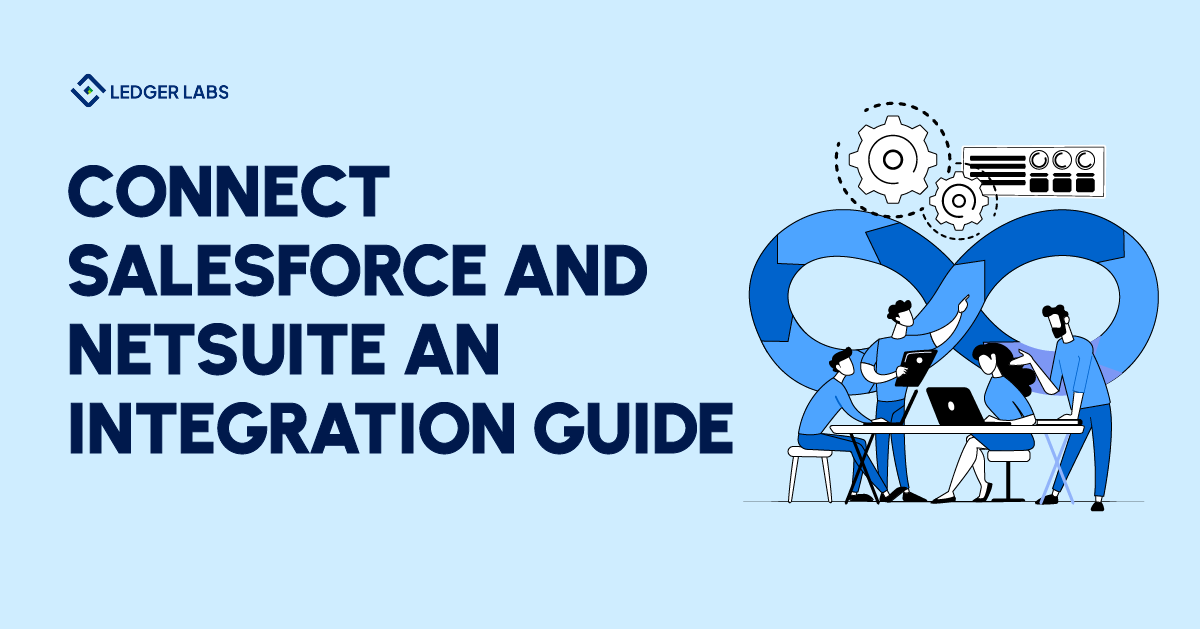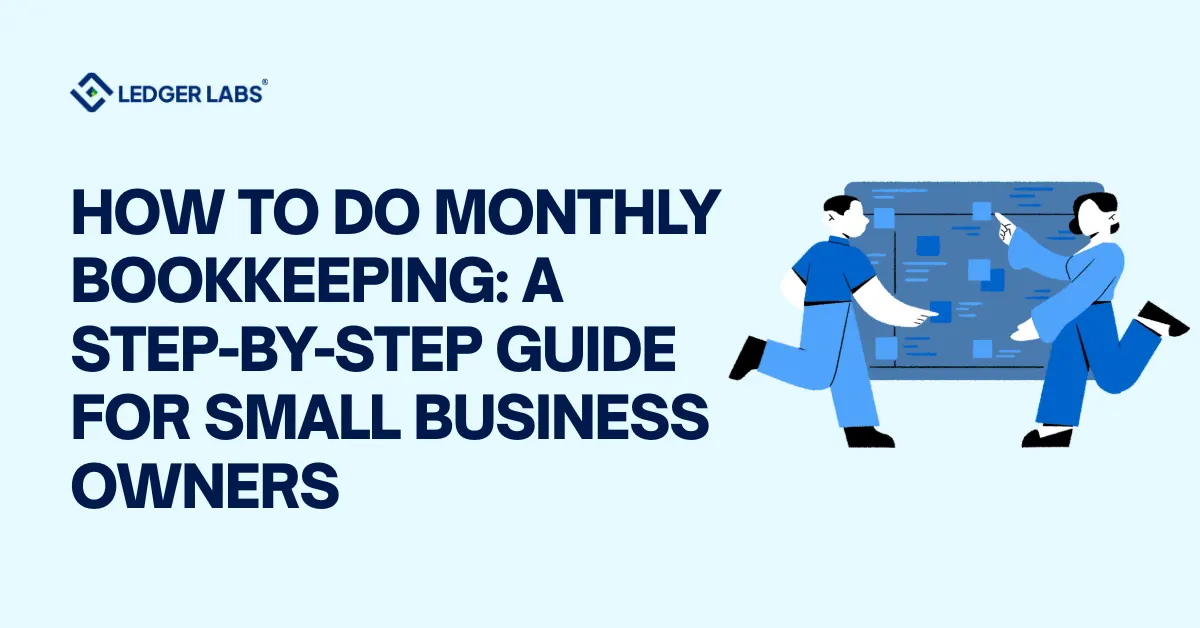Integrating Salesforce with NetSuite isn’t merely a flex but a turning point for your business.
Connecting Salesforce with NetSuite can enhance operational efficiency as it helps you with your day-to-day tasks.
While both systems function well on their own, integrating them can massively impact your communication – within the company and with your customers.
Let’s explore the steps of Salesforce and NetSuite integration along with its benefits and best practices.
- You can connect Salesforce with NetSuite to manage your inventory and align the goals of different business units.
- NetSuite increases operational efficiency by 66% meanwhile Salesforce increases customer satisfaction by 35%.
- Always choose a Salesforce NetSuite integration method that suits your business needs.
- This integration has several benefits, like lead management and accurate reporting.
Understanding NetSuite for Businesses
NetSuite is an ERP solution that helps businesses manage different business processes in the most efficient way possible.
This software contributes massively to inventory management, accounting, and procurement.

28% of businesses have earned expected ROI within 12 months of its implementation meanwhile 24% report improvement in product delivery time.

In fact, 95% of businesses have experienced substantial improvement in their overall business operations.
What makes NetSuite so great is its centralized data system which reduces order processing time and increases collaboration within different business units.
Key Features of NetSuite
A Cohesive Platform
NetSuite is known for bringing different business units together.
When you have NetSuite, you don’t separate systems for every task.
This makes a huge difference as it reduces manual data entry and improves accuracy and efficiency in business management.
Financial Control
NetSuite gives you an advanced system that tracks your financial processes and ensures you’re compliant with the latest accounting and legal regulations.
It adds transparency to your business and improves how you manage your finances.
Moreover, with real-time financial insights, you can make decisions that increase efficiency and reduce costs.
Inventory Management
NetSuite’s standout feature is its Inventory Management, allowing you to track your inventory levels and get real-time insights for informed decision-making.
You can manage your inventory better by knowing how much stock you have left and which product is sitting on the shelf eating dust.
For example, you can add raw materials that are quickly getting sold out, and chop off the unpopular products from your inventory list.
Understanding Salesforce for Businesses
Salesforces is one of the initial supporters of cloud model and currently amongst the leading SaaS and PaaS providers.
In 2023, Salesforce collected an annual revenue of $34.9 billion with 73,000 employees worldwide.
This cloud-based software provides CRM solutions to its users, supporting their marketing and sales initiatives.
Generally speaking, a CRM system is dedicated to helping you take care of your customers and leads.
The intention is to foster healthy relationships with them by collecting data and storing them for further evaluation and decision-making.
For example, you can use data from your interactions with your customers to better understand their needs and create marketing strategies to target exactly those triggers.
Salesforce is the top CRM software that helps businesses track customer journeys and order cycles.
Key Features of Salesforce
1. Lead Management
Salesforce provides lead support to businesses.
It helps businesses track leads and manage customer data to cater to their needs as best as possible.
For example, the system captures leads and assigns them to the sales navigator. This is followed with proper follow-ups and improved conversion rates.
What this cycle does is improve your lead score and conversion rate.
2. Team Work
Salesforce makes communication and teamwork between different departments almost effortless.
Both marketing and sales representatives collaborate and share information in this shared workspace.
This aligns the goals of each department, increasing visibility and overall productivity.
3. Manage Deals
Salesforce is commendable when it comes to tracking the lifecycle of a sale.
From tracking an opportunity to handling initial engagement and closure, it gives you a structured approach to handling your leads.
The integration of this software helps your business optimize its sales strategy and gauge the maximum revenue.
5 Undeniable Benefits of Salesforce and NetSuite Integration
A Salesforce and NetSuite integration is inevitable for a growing business.
It significantly impacts your business processes, increasing the accuracy of data, goal alignment, and enhancing customer insights.

66% of businesses report an increase in business efficiency after integrating an ERP system meanwhile 62% have claimed that it has reduced their cost.
On the other hand, you have Salesforce.

Its users report a 35% increase in customer satisfaction rate and an equal rate of productivity improvement within their sales force unit.
You can well imagine the combined benefits when the two systems unite.
Accurate Reporting
When you integrate Salesforce with NetSuite, you open up the possibility of automated data processing.
This means there’s no need to manually enter data into sheets and then transfer them to different files and folders.
Data migration from one business unit to another without this integration is often prone to error.
With this integration, you ensure increased efficiency and accuracy of data. And obviously, all of this would lead to higher productivity.
The data you attain from different sales processes and customer interactions is always up-to-date. This helps tremendously when you’re reporting.
Accurate and complete data always helps you make informed decisions.
Detailed Customer Insights
NetSuite provides accurate financial and operations information whereas Salesforce has all the data you need regarding your customers and leads.
A Salesforce NetSuite integration consolidates data from both sources, giving you a 360 view of your customers.
This way, you know everything about your customers – their likes and preferences and buying history.
This information can be used to create targeted ads and improve customer experience on your website.
Improved Customer Experience
When you have all the information regarding your customers, you can focus on improving individual buying experience.
Imagine visiting an online website and having all the products you need already organized in front of you.
Or think about getting notifications from your favorite store about their latest collection, before it gets sold out.
Create such experiences for your customers to increase their loyalty towards your brand and foster a healthy relationship.
Efficient Work Flow
Synchronize data and reduce malfunction during data entry by integrating Salesforce with NetSuite.
This integration automates the data transfer process between the two software, helping you improve orders, payments, and invoice generations.
This step makes your order-to-cash lifecycle seamless, increasing customer satisfaction and overall workflow efficiency.
Marketing and Sales Collaboration
Integrating Salesforce with NetSuite is the best way to align your sales and marketing efforts.
While NetSuite tracks financial and inventory data, Salesforce brings customer insights and lead opportunities.
This collaborative effort helps you improve lead generation and its conversion rate.
On one hand, the marketing team creates targeted ad campaigns, and on the other, the sales representatives provide personalized experiences.
A Step-By-Step Guide to Salesforce and NetSuite Integration
There are several ways to integrate Salesforce with NetSuite.
You can integrate them through third-party apps or use the NetSuite API.
The choice of integration method largely depends on your business and its needs. We’ll explain how you can integrate Salesforce with NetSuite’s REST API.
RESTlet is the NetSuite connector for Salesforce.
Things to Consider Before Using RESTlet API
There are a few considerations before you use this configuration method.
- This option is perfect if you wish for a comprehensive customization feature. With RESTlet, you can write your code and alter the connection as you please.
- Conduct a test integration before you actually perform the actual integration to evaluate whether or not you’re getting the desired results.
- Always prioritize the safety of your data.
Let’s take a look at the steps to integrate Salesforce with NetSuite via RESTlet.
Step 1: Create and Add RESTlet Scripts

- Create a Javascript for every object you will link.
- Add Javascript for any new additions that you may sync. This could be an event field or a contact.
Step 2: Verify Request
- Give permission for the transference of data between NetSuite and Salesforce..
- The following code can be used for authentication.

Step 3: Data Migration Between Salesforce and NetSuite

- Create individual web services. It supports data migration in Salesforce.
- Sync opportunity for Salesforce data
- Collect JSON data from the NetSuite database using a data-fetching batch
Step 4: Sync Both Software
- Sync data in batches
- You can add a call-to-action feature or button to simplify the entire process.
Congratulations! You have connected Salesforce with NetSuite.
4 Reasons Why You Must Integrate Salesforce with NetSuite

A Salesforce NetSuite integration can add immense value to your business.
Let’s explore the top reasons why you should integrate Salesforce with NetSuite.
1. It Gives A 360-Customer Information
By integrating Salesforce with NetSuite you can get real-time insights into your customers. You will have answers to the following questions:
- What product do they like the most?
- Who are your customers?
- What do they like?
- What is their buying history?
2. It Offers Unmatched Flexibility
This integration helps your business scale.
It allows you to benefit from impeccable features that adapt quickly to match your changing business needs.
This integration will play a critical role if your business is growing and you wish to evolve with it instead of creating obstacles.
3. It Improves Operational Efficiency
Connecting Salesforce with NetSuite brings different business units together.
It helps your sales representatives, operation staff, and accountant work closely.
Let’s look at a few examples of how it works:
- The employee in the Operations department can green-light a sales order having access to inventory information.
- The Finance department can accurately estimate sales commissions, ensuring smooth payment and transparency.
- The Customer support team can look into the order status and provide comfort and assurance to customers.
Working in close proximity greatly enhances your workflow efficiency, eliminating manual operations and increasing the accuracy of data.
4. It Boosts Speed and Accuracy
This integration will help boost data accuracy and speed up your business processes by providing you with real-time information.
Imagine waiting hours to access information like product price or a possible lead. Wouldn’t that interfere with your productivity?
With this integration, you can access product descriptions and inventory-level data without waiting for hours to receive a response from other business units.
Best Practices for A Successful Salesforce and NetSuite Integration
Make sure you follow the best practices listed below for a successful Salesforce NetSuite integration:
- Have clear goals so you know exactly what you want from this integration
- Create a standardized data mapping procedure
- Choose an integration method that best suits your business needs
- Always prioritize data security
- Conduct regular maintenance programs
- Offer extensive support and training to your employees
- Create a design that supports scalability
- Jot down every step of this integration
The Bottom Line
A Salesforce NetSuite integration can significantly boost your business activity.
Take the next step with this integration as it helps improve data management and resolve workflow issues.
But remember, while there are different ways to integrate Salesforce with NetSuite, you should always opt for a method that meets your specific needs.
Ledger Labs can help with a seamless Netsuite Integration.
With 12+ years of experience, we have helped businesses seamlessly integrate both systems.
For a more in-depth discussion, book an appointment with us today!












